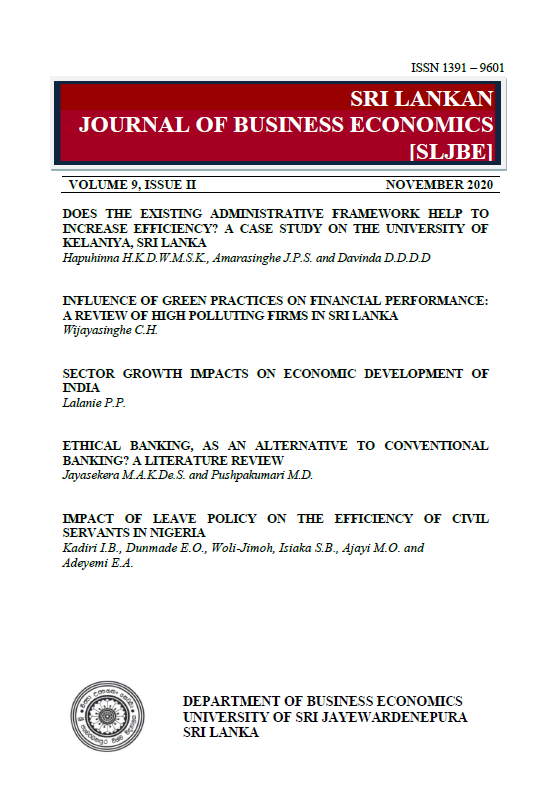DOES THE EXISTING ADMINISTRATIVE FRAMEWORK HELP TO INCREASE EFFICIENCY? A CASE STUDY ON THE UNIVERSITY OF KELANIYA, SRI LANKA
Abstract
In the current global context, there is a growing interest in streamlining higher education institutions in particular. In this context, this study was aimed at making Sri Lankan universities more efficient. The immediate impetus for this study was the policy agreement of the authorities to make the University of Kelaniya efficient according to the Zero-Defect concept. The study was
conducted as a prelude to the university's attempt to adopt a new strategy. This study has a main objective and two specific objectives. The main purpose of the study was to investigate the extent to which the existing administrative framework contributes to achieving the goals of the Zero-Defect concept. In addition, among the specific objectives, 1. To identify the process priority that the Zero-Defect concept should be introduced to improve efficiency 2. To calculate the expected effectiveness of introducing the Zero-Defect concept to priority processes within the existing administrative framework. 21 processes of the Research and Publication Unit of the University of Kelaniya were selected for this study. The time spent on each process
was calculated in minutes, and on three occasions the same data was collected to obtain an average value. The time frame of the study was considered as one year and the frequency of each process was calculated accordingly. Percentage values and Pareto Analysis were used for data analysis, while tables, charts and graphics were used for data presentation. This study confirmed that 72% of the time spent on the research and publishing unit's operations depends on uncontrollable factors. It was further established that the maximum effect on controllable factors to increase efficiency was 38%. This study further highlights the need for further studies to minimize the impact of uncontrollable factors as much as possible to increase unit efficiency.
Keywords: Process Efficiency, Zero Defects, Higher Education

